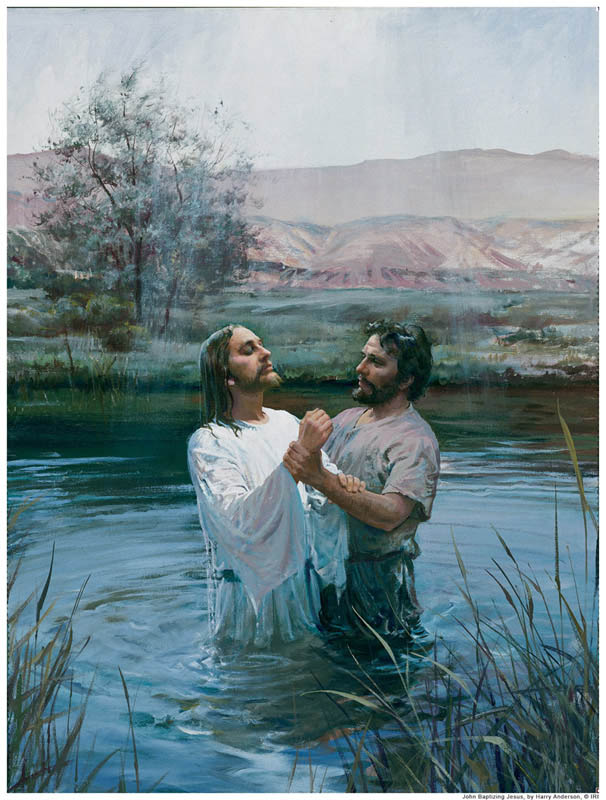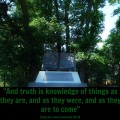Mormons like to say that when Jeffrey R. Holland gets up to speak, Satan panics. His talks appeal to both Mormons and non-Mormons and one group of evangelical religion students, shown a video of one of his speeches, admitted it could have been given by one of their own leaders. Such a talk was given by Elder Holland in the Mormon General Conference in April 2013. Elder Holland is an apostle, in the same tradition as the Biblical apostles.
In his talk, which set the social media world buzzing, Jeffrey R. Holland’s talk was entitled “Lord, I believe.” He took as his text the New Testament story told in Mark 9. Jesus found his apostles arguing with a man. He asked what was wrong and learned the man had requested a blessing of healing for his seriously disabled son but had not received it. He pleaded with Jesus to help him. Jesus told him that all things were possible through faith. The father, tears in his eyes, cried out, “Lord, I believe; help thou mine unbelief.”
He then helps us understand the lesson of this unusual statement. The use of the plural in his request for help tells us the entire family is suffering and so the Savior would be helping more than just the boy. However, this father does not have perfect faith. Does that matter? Jesus taught the father that it did not. Furthermore, the father did something very important. He began by stating his faith. Only then did he admit it was less than perfect. The faith we do have is more important than the portion we lack.
Jesus was able to heal the father based on the imperfect faith of the father. I promised a series of articles on Jesus in the Book of Mormon, and while most of Elder Holland’s talk quotes Bible verses, there is one portion of the Book of Mormon he quotes here and it’s important. There is a famous (to Mormons) sermon by an ancient prophet named Alma on faith. He explains that you need no more than a desire for faith in order to start building faith. This means that a person who is an atheist, but wishes he had faith, could begin the process and have God’s help. If he wishes or longs for faith, he can begin to nourish that longing by beginning to pray (even if he isn’t sure anyone is listening), studying God’s teachings, and trying to live a Christian lifestyle. Then he can monitor the impact those things have on his life and his heart. When he begins to realize these things are making his life better, the first faith begins to develop.
Elder Holland offers several lessons to be pulled from the story of Jesus’ rescue of this child. The first, mentioned above, is that we focus first on the faith we do have and not on how small or new it might be. “The size of your faith or the degree of your knowledge is not the issue—it is the integrity you demonstrate toward the faith you do have and the truth you already know.”
His second point is that focusing primarily on what the limitations of your faith is like “trying to stuff a turkey through the beak”. Elder Holland explained that it is okay to have questions and doubts, but that we must not let those questions and doubts interfere with faith’s ability to lead to miracles. Start from a position of faith and then go to God (not man) with the questions.
Many listeners have shared his comment on accepting the imperfections of our faith and of our practices:
So be kind regarding human frailty—your own as well as that of those who serve with you in a Church led by volunteer, mortal men and women. Except in the case of His only perfect Begotten Son, imperfect people are all God has ever had to work with. That must be terribly frustrating to Him, but He deals with it. So should we. And when you see imperfection, remember that the limitation is not in the divinity of the work. As one gifted writer has suggested, when the infinite fulness is poured forth, it is not the oil’s fault if there is some loss because finite vessels can’t quite contain it all. Those finite vessels include you and me, so be patient and kind and forgiving.
 The final point is that it is okay to ask for help. The father in the Biblical story did just that. He asked Jesus to help him with the weaknesses still existing in his less than perfect faith. When there is an aspect of God’s doctrine we don’t understand or feel uncomfortable with, we need only pray and ask Him to help us understand it. We don’t have to trust the words of men, although listening to the teachings of our leaders is important. In the end, though, those words should lead us to ask God for a testimony of them.
The final point is that it is okay to ask for help. The father in the Biblical story did just that. He asked Jesus to help him with the weaknesses still existing in his less than perfect faith. When there is an aspect of God’s doctrine we don’t understand or feel uncomfortable with, we need only pray and ask Him to help us understand it. We don’t have to trust the words of men, although listening to the teachings of our leaders is important. In the end, though, those words should lead us to ask God for a testimony of them.
Read “Lord, I Believe” or watch the video below.
The late Terrie Lynn Bittner—beloved wife, mother, grandmother, and friend—was the author of two homeschooling books and numerous articles, including several that appeared in Latter-day Saint magazines. She became a member of the Church at the age of 17 and began sharing her faith online in 1992.






